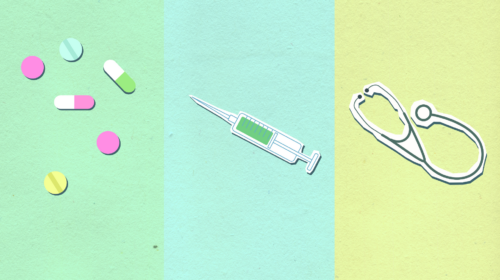Although it can be hard to see past the hard work and necessary change, the benefits of addiction recovery far outweigh the efforts and initial challenges; and there’s ample data to back up this claim. While first-time relapse rates from drug use disorder remain between 40 and 60 percent (on par with other chronic diseases, like diabetes and high blood pressure) according to data from the National Institute on Drug Abuse, it’s also true that approximately 75 percent of those who seek recovery from substance use disorder (SUD) eventually achieve long-term success. Translation: even though it may feel hopeless; like you or your loved one will never feel healthy or normal again, it’s not only possible to get better; it’s probable that you will if you keep at it.
Working Toward the Benefits of Addiction Recovery
In a perfect world, there is no substance use disorder; in a less perfect world everyone who does struggle with SUD gets better after their first time in treatment; in the actual world, there are incredibly difficult biological, psychological, social, and behavioral factors that test the strength of your recovery every day, often leading to setbacks.
What is often left out of the conversation about the benefits of addiction recovery versus the work it takes to get there is that it often takes multiple tries. Data from Massachusetts General Hospital’s Recovery Research Institute (RRI) indicates that the average number of attempts before success in recovery is five, though the median number is closer to two, which means that there are a few select cases of severe and chronic addiction that are making the numbers trend higher.
What these numbers, as well as the lived experience of so many in recovery, tell us is that not everyone gets it right the first time, but most do eventually find peace of mind and lasting freedom from their substance use disorder, and other benefits of addiction recovery.
What Does Recovery Take?
While there is no one-size-fits-all approach to addiction treatment and recovery, the process does take independent work, stability, routine, and support on the clinical and lifestyle fronts:
Clinical/Medical Recovery Work – Addiction is a chronic brain disease that requires ongoing care to address the neurobiological elements of the condition. This is done through treatments (detoxification and behavioral rehab) as well as ongoing therapy and medical management of associated health issues. While it’s different for everyone, the process of managing the impact of addiction can last a lifetime, depending on what sort of medical and behavioral health issues you’re facing.
Behavioral/Lifestyle Recovery Work – This includes cultivating a healthy, stable, and rewarding lifestyle, including creating a support system, taking care of your physical fitness, and rebuilding your career and relationships. This stage of recovery will often require using the coping tools you gained in treatment to get through difficult situations that can lead to relapse. Here are some things to maximize your chances at long-term recovery:
- Listen – Treatment and recovery provide the value of fellowship. Others have been where you are and can help guide you during difficult times. Rely on their wisdom and experience and take as much as possible.
- Keep It Up – Don’t take your recovery for granted, no matter how long it has been since you’ve gotten clean. Keep going to meetings, keep going to therapy, and keep working on all aspects of your program, whether it’s AA, NA, SMART Recovery, or anything else. Even when you have it all figured out, you may hear something in a meeting that resonates in ways you never expected.
- Stay Connected – Immerse yourself gradually in your alumni community and start volunteering more and more at meetings. A sense of purpose, whether it’s day-to-day or long-term, provides a reason to keep taking care of yourself…people are depending on you!
- Speaking of Taking Care of Yourself… – We mean it! Recovery is more than just staying off drugs and alcohol. Focusing on fitness, nutrition, and mental health is critical to helping you feel better and more energized each day. Get at least 30 minutes of exercise, reduce sugar and salt, and prioritize sleep for a holistic approach to wellness.
- Know When to Walk Away – Stay away from the destructive triggers that can cause relapse. This includes the people, places, and things associated with past alcohol or drug abuse and other factors that lead to temptation.
You should also lean on your support system when things get difficult, tense, or overwhelming.
What Does Recovery Give?
The short answer is: “everything.” When you finally start to feel comfortable in your recovery, everything else in your life will likely improve, including your physical and emotional health, your family and social relationships, your career and financial stability, your hygiene, your confidence, independence, autonomy, and overall quality of life. The reality is that no aspect of your life is spared from your addiction, and every aspect of your life is improved by recovery. It allows you to focus on literally living your best life.
One landmark study from the Recovery Research Institute found that more than 80 percent of respondents reported at least one achievement in four key domains: self-improvement, family engagement, civic, and economic participation.
Start Reaping the Benefits of Addiction Recovery Now
The immediate and long-term benefits of addiction recovery are closer and more attainable than you think. They’re not an illusion; they’re not an abstraction, and they’re not an impossibility. Start taking your first steps toward healing. Whether you’ve been to treatment before or this is your first time, Recovery Unplugged is ready to help you overcome your substance use disorder. We offer multiple locations nationwide and are in-network with most major insurance companies to put care even more within your reach. Contact our team today to start the healing process. Recovery is well worth the work…and so are you.

























